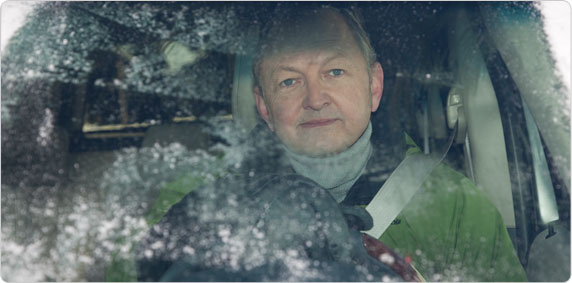The winter driving season is a challenge for all drivers
Sadly, an average of 34 people are killed and 7,110 injured in 4,740 crashes every December on B.C. roads, making it one of the highest months of the year for crashes.
Now that the winter season has kicked into full swing on road conditions across B.C. driving can be both challenging and unpredictable. Which is why ICBC is asking drivers who will be travelling during the holidays to get prepared and adjust their driving to the weather conditions.
“Winter weather has arrived in our province and it’s vital for drivers to be prepared before they set out for the holidays,” said Mary Polak, Minister of Transportation and Infrastructure.
“The safety of B.C. families is our top priority. Drivebc.ca is a valuable resource and allows drivers to see what road conditions they might face on their trip so they can feel confident that they’re well prepared to get to their destination safely.”
“We want you to reach your destination alive,” said Shirley Bond, Minister of Justice and Attorney General.
“Speeding in poor weather conditions is extremely dangerous and foolish, especially when you consider it’s a leading cause of death on our roads. Be prepared for the weather, slow down, stay sober, and take care of the precious holiday cargo you’re carrying in your vehicle – you and your family.”
“Whether you’re travelling a short distance to a family member’s home or longer for a ski hill getaway, we’re urging drivers to adjust their driving to the winter conditions across the province right now,” said John Dickinson, ICBC’s director of road safety.
“We want you and your family to enjoy the holidays and stay safe on our roads, so please make sure you and your vehicle are prepared for the trip and use extra care while driving.”
Here are ICBC’s tips to help drivers and their families stay safe on the road this winter:
- Know the path: Before you begin your trip, check the road and weather conditions on drivebc.ca for your entire route. Weather conditions can change drastically along your route so make sure you’re prepared for all of the weather conditions you may encounter and give yourself extra travel time to get to your destination.
- Get equipped: For your safety and the safety of other drivers, ICBC recommends using winter tires if you live in an area where you would normally expect a lot of snow or if you’ll be travelling to an area with these conditions. Ministry of Transportation and Infrastructure can designate snow tires to be required on certain roads and highways and if you are driving without them, police can ticket you and make you turn back.
- Pre-trip check: Check your tire pressure as tires can deflate quickly in the cold and overinflated tires can reduce gripping. Use low-beam lights in snowy conditions and don’t use cruise control on slippery roads. Keep your gas tank full to prevent freezing in extreme temperatures and pack an emergency kit in your vehicle in case you get stranded.
- Adapt your driving: While preparing your vehicle is vital, it isn’t enough to keep you safe. Drivers need to adjust their driving behaviour to the road conditions. For instance, a speed limit of 90 km/hr on a highway is for ideal conditions only. With conditions far from ideal right now, drivers need to slow down and increase their following distance so that they have time to react to the unexpected.
- When things get slippery: While black ice is nearly impossible to see ahead of time, it is commonly found on roads with shaded areas, bridges, overpasses and intersections where vehicle exhaust and packed snow freezes quickly. If you drive over black ice and begin to skid, don’t use your brakes. Instead, ease off the accelerator and look and steer smoothly in the direction you want to go. You may need to repeat this manoeuvre several times until you regain control of your vehicle.
For more tips on winter driving including information on black ice and winter tires, visit icbc.com/road-safety.
Regional statistics
In the Lower Mainland, on average, 9 people are killed and 4,650 injured in 3,130 crashes every December.
On Vancouver Island, on average, 5 people are killed and 970 injured in 660 crashes every December.
In the Southern Interior, on average, 13 people are killed and 1,060 injured in 680 crashes every December.
In North Central B.C., on average, 8 people are killed and 410 injured in 260 crashes every December.

























